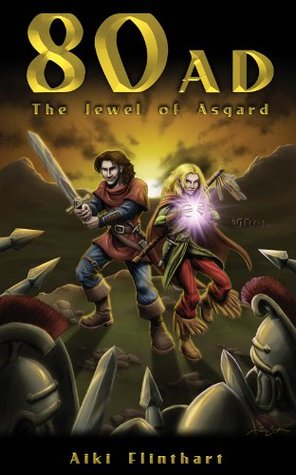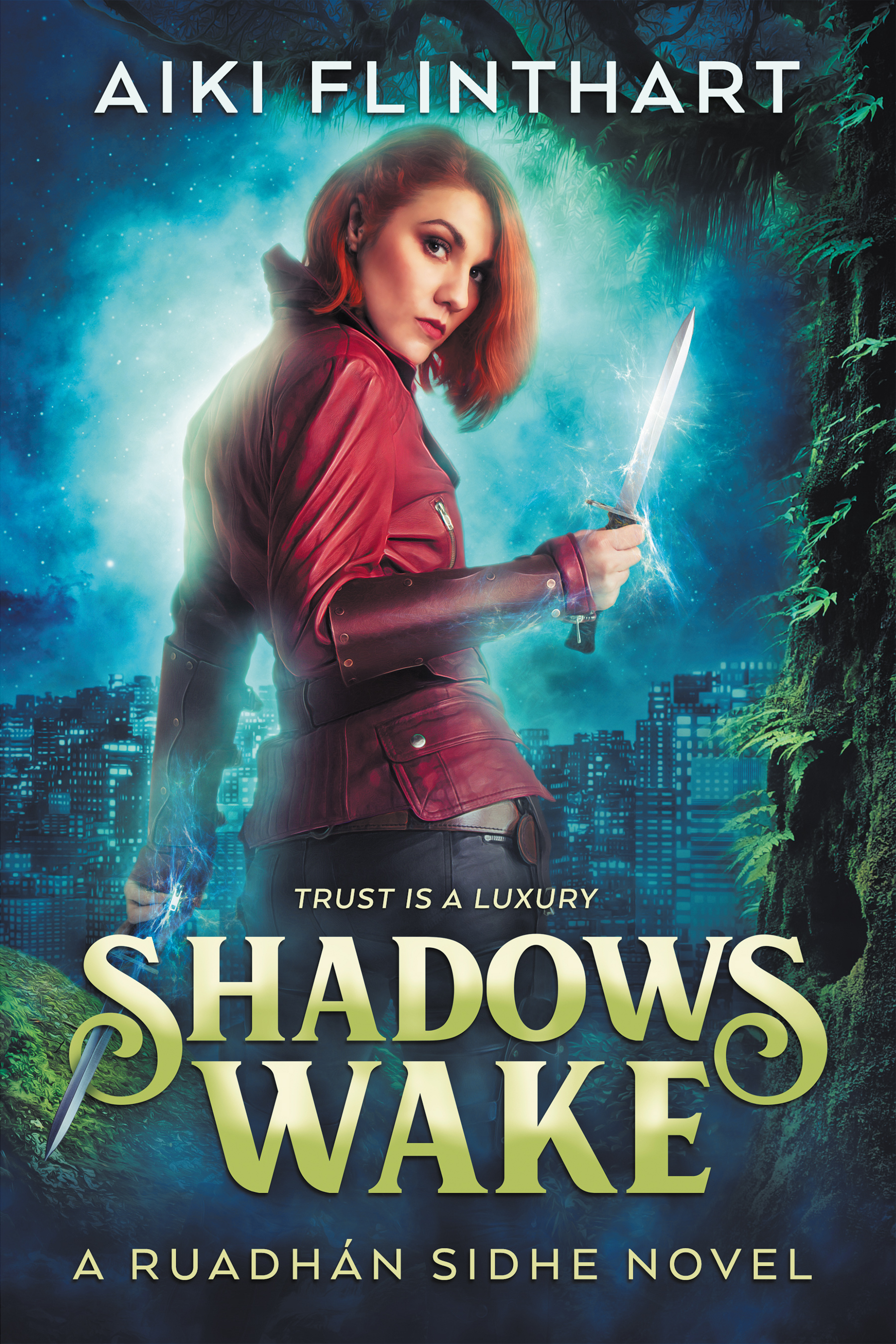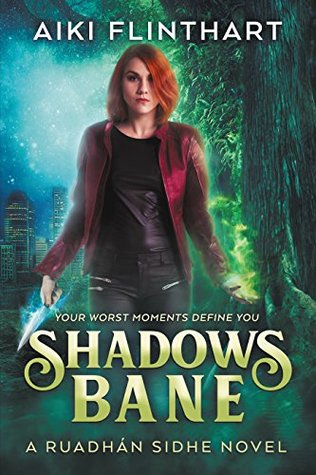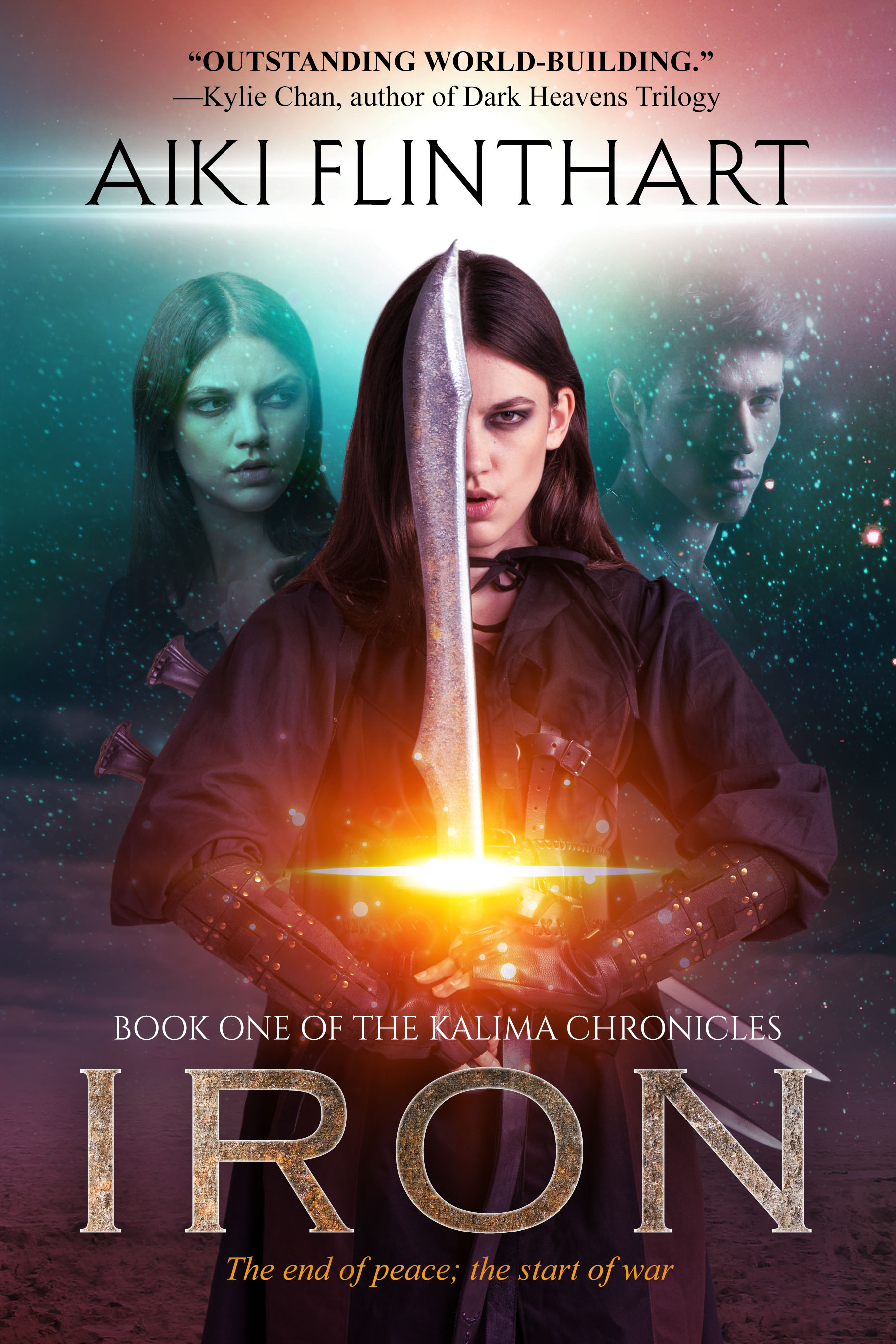Author Spotlight – Aiki Flinthart
Aiki lives in Brisbane, Australia, with her husband, (Ernest), teenage son (Leonidis – not their real names, obviously), aging dog and directionally-challenged fish.
In between being a wife, running a business full-time and helping Leonidis with homework, she squeezes in a few hobbies, including: martial arts, painting, writing, reading, bellydancing and playing three or four musical instruments. Occasionally she even sleeps. Very occasionally.
You can find her on Twitter at @AikiFlinthart, or on her website: http://www.aikiflinthart.com.
Thanks for joining us today, Aiki. Let’s start small: tell us about a great book you’ve read recently!
Angela Slatter’s “Vigil” – great urban fantasy with some fun, snarky character dialogue (inner and outer). And set in Brisbane, Australia – which is where I live. So it was fun reading a world-within-a-world trope about my own town; set in familiar cafes and streets. Apart from that, I’ve been alternating between a few classics – Daphne du Maurier, Ray Bradbury, Robert Aspirin, Baroness Orczy. Eclectic, I know.
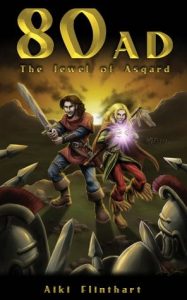 Okay, time to escalate things: reality warps and you suddenly find yourself leading a D&D-style party through a monster-infested dungeon. What character class are you, and what’s your weapon of choice?
Okay, time to escalate things: reality warps and you suddenly find yourself leading a D&D-style party through a monster-infested dungeon. What character class are you, and what’s your weapon of choice?
Leading the party? Right, means I really can’t play a tank class barbarian as IQ isn’t normally their high roll. Probably a half-elf ranger-cleric. Very old-school, I know, but I haven’t played for a long time. Weapon – longbow. Partly because I shoot the longbow, myself, and just can’t resist playing out my fantasies.
When you’re not trawling through dungeons, do you prefer to type or to hand-write? Why?
So wand-waving to magically create the perfect story isn’t an option? Well, definitely typing. In high school, I argued vociferously with my mother that taking typing classes was a waste of time. I was going to be a scientist or a musician. Who needs typing for that? As it turns out, I became both a scientist and a musician, but typing is probably the one thing I’ve done every day of my life. I type at about 60wpm so when I’m on a roll it would be hard to keep up with the flow of thoughts if I was handwriting.
And how do you like to work – in silence, with music, or serenaded by the damned souls of a thousand dead shrimps?
Ahhh- the old existential debate about whether shrimps have souls rears its ugly head so early in the conversation? This could get ugly. Besides, in Australia it would be the shrill ‘singing’ of a million damned cicadas. So I’ll take the safe path. Music or silence? Either, neither. Really doesn’t bother me. I tend to see stories in my head like movies, but I’ve just realised they don’t have a musical sound track. Huh. I do find Jethro Tull’s Beast & the Broadsword good background music when writing fantasy fight scenes. Oh, and I’m currently deep into researching medieval England so have been playing a lot of hurdy-gurdy and shawm music. Now I want a shawm.
Are you an architect or a gardener? A plotter or a pantser? D’you write in your underwear, or in a deep-sea diver’s suit? Tell us something unusual about your writing method!
I can tell you with certainty that the diver’s suit would result in gibberish code as the gloves would hit four keys at once. The underwear? Let’s not go there.
Plotter vs pantser? I kinda use both methods mashed together. My first 5 books (the 80AD YA fantasy series) were totally pantsed. I’m a bit scared to go back and look at the structure of those, actually. Still, they’ve had 250 000 plus downloads and lots of good feedback, so they can’t be all bad.
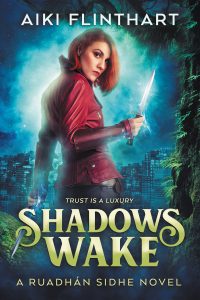 The next trilogy – urban fantasy Ruadhan Sidhe novels, Shadows Wake/Bane/Fate – were a combination. Fate was thoroughly plotted. So I wrote it fast but I did find it quite restrictive.
The next trilogy – urban fantasy Ruadhan Sidhe novels, Shadows Wake/Bane/Fate – were a combination. Fate was thoroughly plotted. So I wrote it fast but I did find it quite restrictive.
The Kalima Chronicles – a sci-fi/fantasy trilogy coming out soon (IRON due out in Nov 2018) – were pantsed. I went back afterward and checked the plot structure and found all the key beats fell in the right places. Which was pleasantly surprising.
I also prefer to write all the books in a series/trilogy before releasing any of them. Mainly because I like to go back to the first book to seed in foreshadowing for the next two, and the second for the third…etc. I suspect, though, that if I ever write a longer series, I may have to settle for roughing out the plot into the foreseeable future in order to do at least a little foreshadowing in the early books. Otherwise the series might never be released.
As for unusual – I have been known to drag my husband out of his chair to practice fight scene techniques and combinations. He doesn’t roll his eyes too much these days. My son runs away when I speak the fateful words ‘Can you just throw a straight punch, please?’.
I would probably write best locked away in my library. But my husband is the extrovert in our family and misses me. (Fair enough, really. We did marry each other because we actually like spending time together). So he was kind enough to make me the most beautiful laptop table out of Australian blackwood. Now I can sit in the lounge with him and write. He’s useful for bouncing ideas off, as well. And he’s good with witty dialogue ideas.
What are your most significant non-book fantasy influences?
It’s a bit of a circular question. What I do influences what I write and read. What I read and write influences what else I do. I’m a martial artist, so many of my protagonists are, too. Then I had one who was an archer, so I decided I needed to learn that. Now I shoot longbow and horsebow on the weekends. Then I needed to learn to throw knives – so I practice that a few times a week, too.
I play violin, but lute seemed more ‘fantasy’ so I took that up instead. Then one of my characters had to be a lutenist. My son now plays D&D, so hearing his stories has inspired a couple of fun short stories.
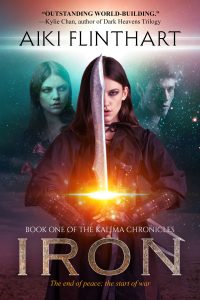 I sent my son and husband on a blacksmithing weekend to get them out of my hair…and they came back covered in coaldust and with a manic look in their eyes. They took up smithing as a hobby. That inspired the premise for the Kalima Chronicles trilogy: IRON, FIRE and STEEL.
I sent my son and husband on a blacksmithing weekend to get them out of my hair…and they came back covered in coaldust and with a manic look in their eyes. They took up smithing as a hobby. That inspired the premise for the Kalima Chronicles trilogy: IRON, FIRE and STEEL.
Having done quite a bit of personality profiling training, I also use that to create balanced ensemble casts so there’s always a character that should appeal to every reader type.
Really, if you think about it, everything you do in life can be morphed into a fantasy world influence. And visa versa.
I try hard to be like the best of my characters. Often without success.
What was the last thing you watched on TV and why did you choose to watch it?
We moved a year ago into a house that has no free to air tv hooked up. So we don’t have TV at all any more. I did get a Netflix subscription, though, just because I was feeling left out of the ‘have you seen’ conversations on social media.
So I binge-watched a few things like Lucifer, Stranger Things, Jessica Jones (OMG how good was series 1?), Grimm etc. Mostly urban fantasy type series. Although I did re-watch Pride and Prejudice (Colin Firth!). I have a weakness for Jane Austen and Georgette Heyer. Who can resist a good Regency story?
Mostly I was trying to catch up with where current trends in fantasy/sci-fi/urban fantasy are. Must admit I’m not keen on the grim-dark trend that’s happening. *Shivers* Too vivid an imagination. I have awful dreams after watching some of them.
I haven’t watched much for a while, though. It was eating into my writing time and I’m conscious of time ticking away in life.
Life is participation, not observation.
The world shifts, and you find yourself with an extra day on your hands during which you’re not allowed to write or otherwise do any work. How do you choose to spend the day?
Tricky. Probably a leisurely sleep in, followed by a chilled out coffee/brunch and chat with my amusing and adorable husband. Then lute practice, knife-throwing, archery, dojo and maybe even some painting if I have time left. Note: I’m lumping things like laundry and renovating the house in with ‘work’, along with doing my taxes and other eye-gouging things to be avoided until the last minute.
If you could choose one punctuation mark to be made illegal, which would it be and why?
That’s a hard one. They all have their place. I do feel the current trend of blandifying (I made that up) writing by paring out all adverbs, adjectives, semicolons and exclamation marks can be taken to the extreme. Nope, I can’t justify killing any of the punctuation. But they do need to be used judiciously. More than one exclamation mark per page is probably too many. Two or three in a row is a sign of insanity.
In no more than three sentences, tell us a little something about your current work in progress!
“Blackbirds” is a challenge for myself – to write unique, deep first-person pov character voices. Historical fantasy set in 1486 London, it’s an anthology of 24 short stories from the points of view of 24 different, ordinary women (with ordinary occupations). Each short story is complete, but will also tie in with an over-arching/through-threaded story about a plot to assassinate the new king, Henry Tudor.
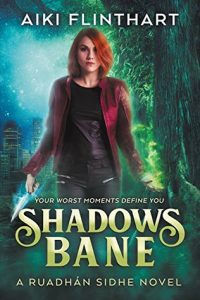 If you could co-write or co-create a series (like The Expanse, or the Malazan Book of the Fallen), who would you choose to work with and why?
If you could co-write or co-create a series (like The Expanse, or the Malazan Book of the Fallen), who would you choose to work with and why?
Wow – that’s a really tough one. I’d be terrified to even ask to join them! Mainly because I honestly don’t know that I’m good enough to work with people of that calibre. However, if they didn’t mind me bumbling around annoying him, I would love to work with Joss Whedon. I realise he writes screenplays rather than books, but his gift of writing unexpected dialogue, and overturning tropes is awesome. I could learn so much from how he thinks about stories.
What’s the most (and/or least) helpful piece of writing advice you’ve ever received?
It’s ok to disagree with your editor sometimes. When I was first professionally edited, I burst into tears. Not only was most of the page red, but I believed I had to accept most (if not all) of the changes. Although many of the suggestions were useful, many were simply the editor’s preferences and weren’t grammatically any better or emotively more powerful. I felt like my unique voice was being stripped out of my writing. Someone else’s voice writing my story. It took a while before I got up the courage to stand up for myself and say ‘no – this sentence stays as it is, and this is why’. It was good, though, because it made me really question what I was trying to achieve in each scene and sentence. And how I might be able to do it better.
If you could visit any country at any point in history, where/when would you go, and why?
Probably China around the time when Qin Shi Huang was on the throne. The final book in my 80Ad series was set in Xi’an – because we’d travelled there and seen the terracotta warriors. It inspired a love of the Chinese culture. In western countries, we glorify our own historical achievements and those of the eastern countries barely rate a mention in school texts. They were an amazingly innovative people with a fine eye for philosophy, beauty and detail. Plus, I’d love to know what Qin Shi Huang’s tomb was really like when it was first built. They still haven’t excavated it, as they don’t feel the current techniques would allow it to be excavated successfully – which speaks volumes for the mindset of the Chinese as a whole.
Every writer encounters stumbling blocks, be it a difficult chapter, challenging subject matter or just starting a new project. How do you motivate yourself on days when you don’t want to write?
I usually have at least three projects on the go. At the moment I’m writing Blackbirds. But when I get stuck there, I’ll go back and either edit an older project that has been lying fallow, or write in an other project that I got stuck on previously. That way I’m never doing nothing. Something is always moving forward. I’m a bit of a goal-orientated achievement-endorphin junkie that way.
Probably something I should have therapy for.
If I’m really stuck on all fronts, I’ll go do some research on the topic. That often sparks a new idea or direction.
Failing that, I’ll go throw knives and swear a lot until I feel better.
Tell us about a book that’s excellent, but underappreciated or obscure.
Good grief. With the millions of books published each year you could probably say most of them are underappreciated and obscure. I’ve recently been re-reading Ray Bradbury. While I know he’s neither of those things, I think a lot of modern writers could learn from his skill with words. For all he was called a science fiction writer, much of his writing fell into the grey borders of horror. And – dated though his writing may seem now – it’s fascinating to try and parse out exactly how he creates a feeling of discomfort in even the most menial and tedious daily life moments of his characters. It makes you super-aware of how much word choice and arrangement has to do with evoking emotion in readers.
And a lot of readers could use re-training in the art of reading slower-paced books that mess with your head.
Finally, would you be so kind as to dazzle us with what we like to call a ‘shark elevator pitch’? (It’s exactly the same as an elevator pitch, but with sharks.) (Well, one shark. Which, by the way, is currently picking between its rows of teeth to try and dislodge the remains of the last author who stepped onto its elevator.)
Ahem. So: why should readers check out your work? A shark elevator pitch of your own book(s) in no more than three sentences – go!
Argh! Which book? Damn you, elevator-shark. I punch you in the metaphorical nose.
Take your pick:
80AD series – fun YA portal fantasy set in alternate-earth computer game and across 5 countries. 2 kids. 5 levels. Win the game or die and destroy real earth, basically.
Ruadhan Sidhe “Shadows” trilogy – urban fantasy kick-arse YA heroine. Sidhe/fae as you’ve probably never imagined them. In a thousand year old battle between humans, Dark sidhe and Light sidhe, Rowan Gilmore is the ultimate weapon they all want.
Kalima Chronicles #1 “IRON” (due out November 2018) – sci-fantasy set on an iron-poor colony world where the discovery of an iron deposit could lead to the destruction of their idealistic society. Or its salvation.
Awesome, Aiki. Thanks again for joining us today!
Aiki Flinthart is the author of the Ruadhan Sidhe trilogy, the 80AD series, and the Kalima Chronicles.

